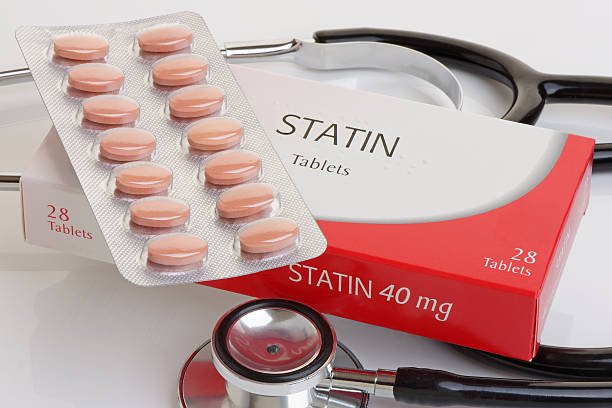
What Happens If Cholesterol is Too High? How to Improve? Causes and Symptoms of High Cholesterol
Modern people eat three irregular meals and generally lack exercise. They often end up facing the problem of high cholesterol, which is the so-called “hyperlipidemia”.
According to surveys from 2017 to 2020, the proportion of people over 18 years old who have hyperlipidemia is as high as 25.6%, which is equivalent to one in every four people having hyperlipidemia, and there is a trend of increasing year by year. Hyperlipidemia does not cause any symptoms in the early stages, but when excess fat accumulates in the inner walls of blood vessels for a long time without control, it can cause arteriosclerosis, leading to highly dangerous heart diseases such as blood vessel obstruction and myocardial infarction.
High cholesterol does not happen overnight. This article will tell you the causes of high cholesterol, what is the so-called “normal value” of cholesterol, what are the symptoms when high cholesterol occurs, and let you understand how to stay away from high cholesterol in one go. threaten!
The role of cholesterol
In fact, cholesterol is not harmful to cardiovascular health. On the contrary, cholesterol can help build cell membranes and produce hormones. Without cholesterol, the human body cannot function normally.
The “bad cholesterol” and “good cholesterol” we often hear are actually from the proteins that carry cholesterol – lipoproteins. They run in the blood by wrapping cholesterol. However, depending on the properties of lipoproteins, they will have different effects on the human body. The impact will also vary.
What is high cholesterol?
So-called “high cholesterol” is usually divided into the following three categories:
- Total cholesterol is too high
- Low-density lipoprotein (LDL) is too high
- High-density lipoprotein (HDL) is too low
Excessive cholesterol is also often called “Dyslipidemia” or “Hyperlipidemia”. Excess cholesterol in the blood may increase the risk of atherosclerosis. If fatty plaques rupture and form blood clots, it may cause myocardial infarction. Therefore, regular cholesterol testing is the key to preventing heart disease caused by excessive cholesterol. one.
Excessive cholesterol, unknown symptoms, hidden dangers
The scary thing is that most patients with high cholesterol often don’t have any symptoms or discomfort until the blood vessels are blocked to a serious extent, and then they may develop coronary heart disease (also known as ischemic heart disease) such as high blood pressure and dizziness. ) common symptoms. However, a small number of patients with familial hypercholesterolaemia or high cholesterol may develop symptoms of xanthomas or xanthelasma, where yellow cholesterol can be seen under the skin (usually around the eyelids) Precipitate.
The six most serious causes of high cholesterol
There are many reasons for elevated cholesterol levels, including some hereditary diseases that are beyond our control, such as familial hyperlipidaemia and familial hypercholesterolemia, but other dangers caused by wrong living habits. Factors also fall into the following six categories:
- Diseases:
including liver disease, kidney disease, hypothyroidism, etc. - Smoking:
Smoking reduces the concentration of HDL, increases bad cholesterol, and damages the inner walls of blood vessels, making it easier for fatty plaques to form. - Unhealthy diet:
In fact, the cholesterol we take in directly from food (dietary cholesterol) has little impact on the overall cholesterol concentration of the human body. Most cholesterol is still produced by the liver. However, excessive intake of manufacturing raw materials such as saturated fat and trans fat, such as fried foods, desserts, bread, instant noodles, etc., can easily cause cholesterol levels to rise sharply. - Lack of exercise:
Exercise can increase good cholesterol, help transport excess low-density lipoprotein back to the liver for metabolism, and increase the particle size of LDL - Old age:
The liver’s ability to metabolize cholesterol gradually decreases with age. - Diabetes:
If patients with diabetes are not properly controlled, excessive blood sugar will lead to a decrease in liver lipolytic enzyme activity, increase LDL, and decrease HDL. In addition, high blood sugar may also cause chronic inflammation of blood vessels and increase the risk of atherosclerosis.
Look at the standard value of cholesterol like this. The graphic diagram will help you understand if the cholesterol index is too high.
Cholesterol testing is a type of blood lipid testing, and most people usually test triglycerides as well. If you have cholesterol or other concerns related to blood lipids and the index is too high, family medicine, general internal medicine or endocrinology and metabolism can assist with further treatment.

How to improve total cholesterol?
When the cholesterol test finds that the value exceeds the standard, doctors usually advise the patient to adjust their diet and lifestyle. If the patient has diabetes or heart disease, or if the condition does not improve and the value seriously exceeds the standard, he or she will take further treatment with drugs.
Adjusting your lifestyle! Eat and live together
To face up to the risks of high cholesterol and cardiovascular disease, the most important thing to do is to adjust your daily eating habits and lifestyle. For example, quit smoking, exercise regularly (at least 30 minutes a day), reduce the intake of saturated fat, replace red meat with white meat and fish, and avoid fried foods, sweets, and sugary drinks. Diabetics should actively control blood sugar, etc.
Even if the problem of high cholesterol has not yet occurred, the above-mentioned living and eating habits should still be started as soon as possible to avoid being affected by the disease and suffering from physical and mental discomfort.

Drug treatment for high cholesterol
Drugs used to treat high cholesterol can be divided into the following categories:
- Statin:
Inhibits the rate of cholesterol synthesis in the liver. Related drugs include Simvastatin, Rosuvastatin, etc. - Bile-acid-binding resins:
Cholesterol is one of the components of bile acid. The mechanism of bile-acid-binding resins is to combine with bile acid to prevent the bile acid in the intestine from being absorbed, so the liver must consume it. More cholesterol makes cholic acid, which lowers cholesterol levels in the blood. Related drugs such as Cholestyramine. - Cholesterol absorption inhibitors:
The intestines can absorb cholesterol from the food eaten. This drug can inhibit the absorption of cholesterol in the intestines. Related drugs such as Ezetimibe. - PCSK9 inhibitor:
It can inhibit the PCSK9 molecule in the human body, so that the low-density lipoprotein receptor of liver cells cannot bind to it, so the liver can metabolize more cholesterol. Related drugs such as alirocumab - Lomitapide:
directly binds to particulate triglyceride transporter protein and inhibits its action to inhibit the synthesis of chylomicrons and very low-density lipoproteins (VLDL), thereby indirectly reducing low-density lipoproteins in the blood. Mainly used to treat Homozygous familial hypercholesterolemia. - Mipomerson:
an oligonucleotide inhibitor of back translation. It can inhibit the synthesis of Apo-B in the human body and indirectly reduce the amount of LDL. Mainly used to treat homozygous familial hypercholesterolemia.













